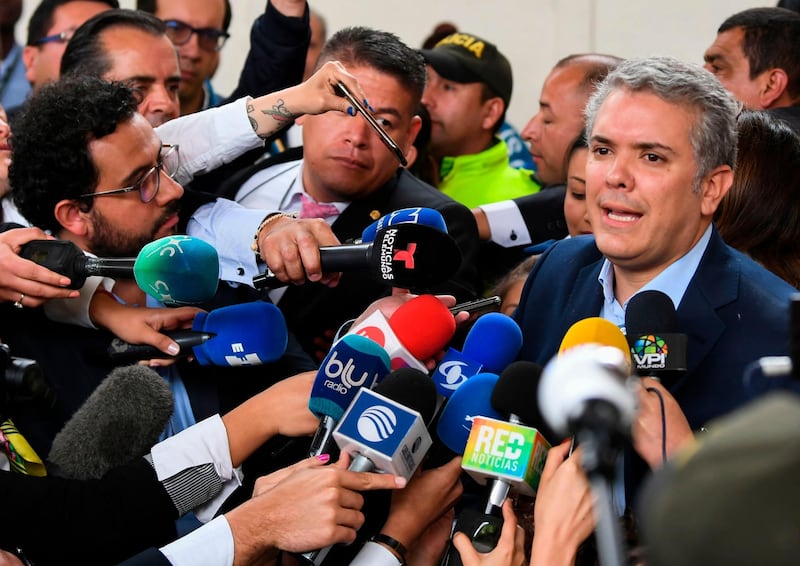In 2016 a landmark peace agreement between Farc, a violent leftist militia, and the Colombian government saw more than 10,000 fighters surrender their weapons and begin their transition to civilian life.
With that ended five decades of insurgency that killed more than 200,000 people and displaced seven million. Millions of Colombians rejoiced, as did international observers; Colombian president Juan Manuel Santos was rewarded with a Nobel peace prize.
And yet the Colombian presidential elections this week – the first since the peace deal was signed – have thrown its future into peril. The conservative front-runner Ivan Duque has vowed to cripple the deal by removing amnesty for Farc members. He faces a run-off next month with former M-19 guerrilla Gustavo Petro, who would preserve the agreement.
The election results reflect the severe polarisation of a country still recovering from a brutal conflict.
But more profoundly, they speak to the fragility of peace accords that can halt violence but cannot heal the wounds that conflict has inflicted. Blame and vengeance do not disappear when a peace deal is signed. Even in recent history's most successful reconciliations, such as the Good Friday agreement in Northern Ireland, hostile sentiment lingers on.
Bringing peace in conflict requires the perfect alignment of desire and incentive and hence agreements are imperilled by a change in leadership, on either side.
With its electorate united only in its distrust of establishment politicians, Colombia is set for political transition. Whoever is victorious in the second round on June 17 should to their best to ensure a lasting peace. Only then can the scars of a gruesome conflict begin to fade.
Colombia has made excellent progress in recent years. Terrorist attacks, kidnappings and homicides have declined substantially while sectors like mining, technology and agriculture have swelled. This month, the Organisation for Economic Co-operation and Development approved Colombia as a new member, while it will next week become a Nato global partner, the first Latin American country to do so.
Nevertheless, revenge killings of Farc commanders in traumatised rural communities reveal the fragility of the peace. From Basque separatists Eta in Spain to Farc fighters in Colombia, prolonged peace requires effective rehabilitation of rebels. In Colombia it might also necessitate reparations or the return of land stolen during the conflict.
Such conditions are difficult to achieve in a generation, let alone a couple of years. Earlier this year, Colombians revealed themselves unready to accept Farc as a serious political force when the group received just 0.5 per cent of the vote in parliamentary elections.
Yet peace is precious and could collapse altogether should Mr Duque win next month’s election and follow through on his threats.
Peace agreements are never perfect, but they are invaluable. Successive leaders should be wary of ditching hard-fought peace accords. They should choose dialogue over destruction.





